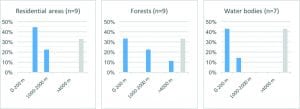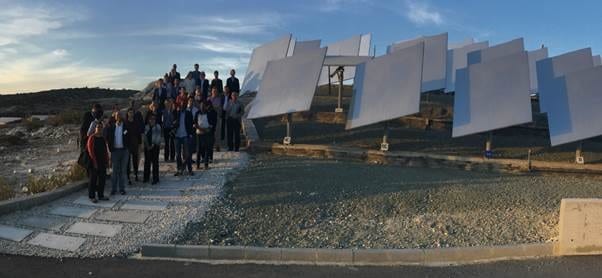Initial steps toward quantifying the social barriers affecting wind energy deployment
By ucqbpri, on 19 December 2017
By Jen Cronin and James Price
The REAccept project aims to quantitatively examine the social acceptance of renewable energy in the UK and use this to improve how such factors are represented in our suite of energy system models.
As described in a previous blog post (by Julia Tomei/Andy Moore on 6th July 2017), a pathfinder project was started in June 2017 with a stakeholder workshop, which focussed on identifying the key drivers affecting social acceptance of renewables, particularly onshore wind. This helped the research team to classify the main physical constraints on wind development and understand the interlocking nature of social drivers, such as attitudes to landscape and habitat conservation, public perception of energy companies and the role of renewables, and concern over house prices.
Following the scoping workshop, the team conducted a survey with workshop participants specifically aimed at quantifying the set-back distances which should be applied to landscape features and residential areas in conservative and ambitious scenarios of social acceptance. Respondents were asked to judge the suitability of different land types for wind development, recommend the minimum distances that should be maintained between wind turbines and features such as roads, grass-land and national parks, and suggest ways in which those distances might be reduced.
 Figure 1 Survey results: Recommended set-back distances for 130m turbines.
Figure 1 Survey results: Recommended set-back distances for 130m turbines.
Ten respondents completed the survey thoroughly, though they were allowed to skip individual questions. Even from this small sample of knowledgeable and engaged stakeholders, a substantial spread of distances were suggested. For example, Figure 1 shows the recommended set-back distances from residential areas, forests and water bodies for a typical wind farm consisting of 10 turbines of 130m height (to the tip).
Respondents suggested that distances to residential areas might be reduced after careful noise studies or if smaller turbines were used. For forests and water bodies, protection of wildlife was a key concern, which could be mitigated by careful site surveys and turbine placement.
Following our pathfinder event, which has allowed us to iterate and refine out methodology, funding is now being sought for a full national-scale project which will seek to quantify the multitude of barriers to the social acceptance of onshore and offshore renewable energy technologies. The survey will be expanded to include other renewable generation technologies and a large sample of members of the public. A series of focus groups and detailed interviews with industry and government experts will also be used to investigate the constraints and the ways in which they could be overcome. The ultimate goal of the project is to understand and quantify the implications of the social acceptance of renewable energy on long term decarbonisation pathways and to value the cost-benefits afforded by potential options to lower these social barriers.
On behalf of REAccept:
Dr Gesche Huebner
Dr Marianne Zeyringer
Dr Julia Tomei
Oliver Broad
Dr James Price
Andy Moore
Jen Cronin
 Close
Close









